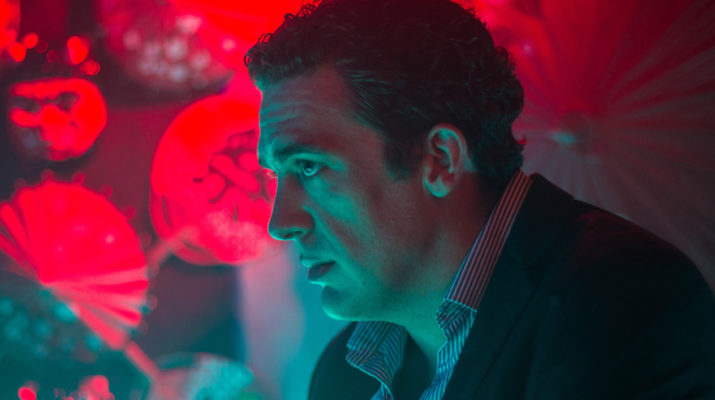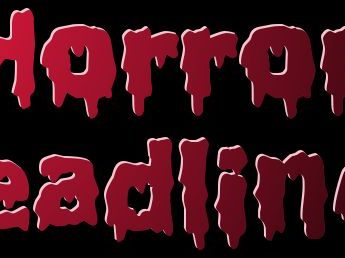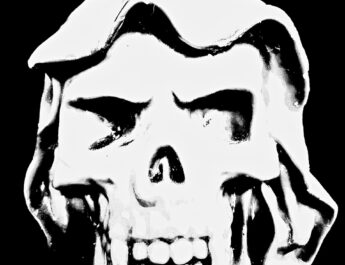“You get the roles you deserve to get”, says actor David Breen, star of the new genre films Post Mortem Mary and Stray.

-PH: The guy you play in Post Mortem Mary sounds like a very intriguing fellow. Was it hard to psyche yourself up to play such a character? Tell me about him?
-David: Gabe was a great character. The film is set on a farmhouse in 1840’s Australia and he is mourning the loss of his daughter. There’s a great sense of loneliness and isolation due to the setting and that played a large part in the development of the character. It’s always a process to psyche yourself up and be prepared for your scenes but over time with practice you find things that work for you that allow you to do your job. Everyone has a different process, for me it’s a lot of personal reflection and being able to empathise with who you are portraying and not judge them.
-PH: Do you find it easy to switch on and off when doing dark films like this?
-David: I wouldn’t say it’s easy but when you are able to define and utilise your own process it becomes a lot less difficult. You never want to feel too comfortable, that’s a danger sign. If you do the work in pre-production, have discussions about the character and such then by the time you get on set you know what you’re supposed to be doing then it’s time to work. Regarding switching on and off, for me, if you’ve done the work you’ll be fine on set. Having your own process is your greatest asset.
-PH: What kind of direction did the director give you in terms of how to play this guy?
-David: The director and I focused a lot on the sense of isolation and guilt that the character must be experiencing. Mary was his only child and she died in a tragic accident that he was responsible for. Couple this with the isolation of the property and the 1840’s setting it’s not like he had anyone he could talk to about it so it’s playing on his mind repeatedly and he’s having a really hard time to say the least.
-PH: Was it hard to shake him off at the end of the day?
-David: Physically It was hard to get all the dust and mud off. Psychologically it wasn’t that difficult. If I look back at all the characters I’ve played so far and couldn’t shake them off, I’d be a hell of a mess. Gabe’s circumstances are tragic but when I’m out of costume and back home after each day I feel fine. Like they say, ‘never bring your work home’.
-PH: What are the advantages and disadvantages of working on smaller productions like this? Does it all come down to catering?
-David: You can judge the budget of a film by the catering most of the time. You know that money is getting tight when lunch and dinner are pizza and more pizza. One advantage of working on smaller productions that I personally love is how closely I get to see people in their respective departments doing their jobs, I’m fascinated by watching everyone mastering their own skillset. On larger productions you can be a fair way away from set during setups but on a smaller film you get to see everyone doing their thing, I love that comradery. As for disadvantages you don’t know till you’re there. If you trust the people you’re working with you’ll be fine.
-PH: I suppose indie films is where one finds out just how much they’re in it for the love of acting, because it’s definitely not about the money? Is it all about the acting, for you?
-David: If it was about the money I’d be doing something else. I know how cliché it sounds but yeah, for me it’s about the acting. I’m fascinated by so many different topics; science, psychology, philosophy, history to name a few and I discovered that part of my process is using all this information to inform me about the character and the film. Acting is the only occupation I’ve found where I can take bits and pieces from so many different topics and use them to create and I love that so I’ll keep doing it.
-PH: What still fuels you to pursue acting?
-David: The feeling that my best work is in front of me and I haven’t even begun to reach my full potential. I want to fulfil that, I want to see just what I’m capable of.
-PH: I imagine it’s a game of ups and downs and you’d have a thick skin?
-David: One of the first directors I ever worked with used this quote “to survive as an actor you need the skin of an elephant but the heart of a butterfly” I think that says it all.
-PH: Is there a role you really wanted, but didn’t get, that still stings a little?
-David: No, you get the roles you deserve to get, if you didn’t get a role but did your best then just keep your nose to the grindstone. Patience is a great virtue.
-PH: Which of your movies, do you consider, your best score? Which one were you most excited to be a part of?
-David: My personal favourites are the last few films I have done, Post Mortem Mary and Stray. I developed a great working relationship with the main creatives of these films and the fact that we all believe in each other’s abilities means we’re all in this together, so we never let each other down. In saying that though if you’re on set acting it’s already a great day so every gig is awesome to be a part of.
-PH: And how was Stray as an experience? It just premiered at Screamfest I believe?
-David: Yeah Stray premiered in October in LA, the director, writer and producer were in attendance and they received great feedback. As an actor Stray was the most demanding film I’ve done which may sound odd considering it was a short film but the level of detail the director and the rest of the team were cultivating in every frame was expert. One of my favourite scenes is a one shot lasting nearly two minutes in a very small space, everyone had to do their jobs perfectly to make it work and to their credit they did. Stray is just starting its festival run so I look forward to having more news to share very soon.



